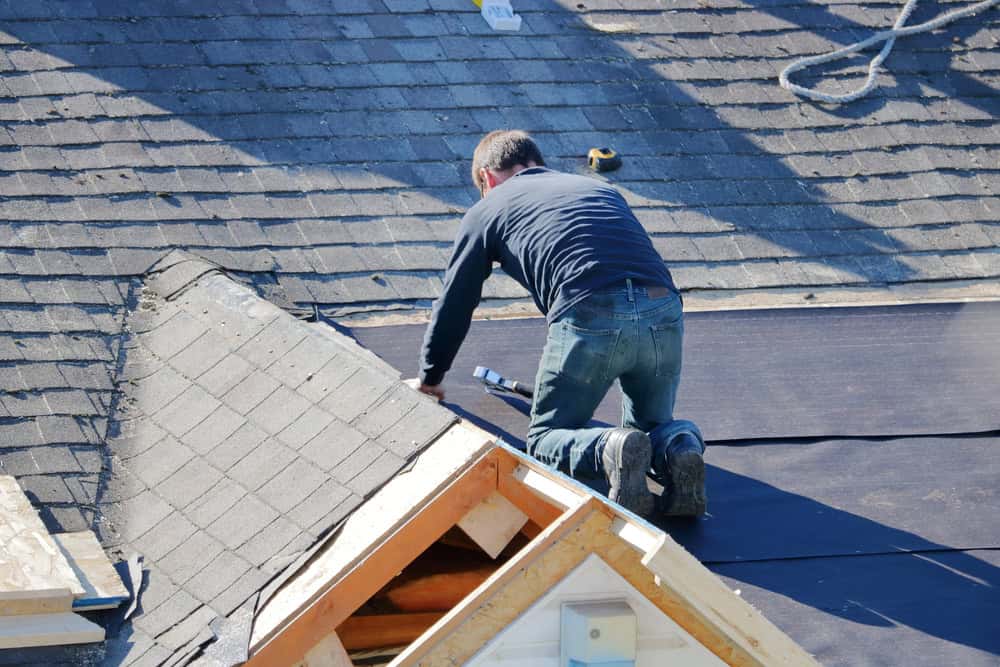How To Choose the Right Residential Roofing Service Provider?
This post contains affiliate links. Click here to read my affiliate policy.
Last Updated on May 19, 2025

Photo Credit: Deposit Photos
Choosing the right residential roofing service provider is an important decision that affects the safety, durability, and value of your home; selecting one with proven experience, solid credentials, and a trustworthy reputation ensures your roofing investment pays off for years to come. Homeowners should look for a provider that offers tailored solutions, meets all licensing and insurance standards, and has a strong presence in the local area.
A reputable contractor can address specific needs—such as weather resistance and material quality—so your roof is prepared for Canadian conditions. By paying attention to references, qualifications, and clear communication, property owners can feel confident in their choice.
Key Takeaways
- Make informed decisions when selecting a roofing professional.
- Verify experience, credentials, and local reputation.
- Request solutions that address your home’s unique requirements.
Important Factors in Selecting a Residential Roofing Service Provider
Choosing the right roofing contractor for a residential project involves reviewing credentials, confirming past results, and ensuring important protections are in place. Taking these steps can help homeowners avoid costly mistakes and reduce risks.
Evaluating Professional Credentials and Licensing
Homeowners should confirm that any professional roofing contractor holds the correct provincial or local licences and permits. Licensed contractors meet regulatory requirements that are critical for legal compliance and basic safety standards. Requesting proof of insurance protects both the homeowner and contractor in case of injuries or damages.
Insurance coverage, especially liability and workers’ compensation, is a must. Proper documentation, such as up-to-date certificates, should be readily available for inspection. Verifying these details ensures the roofing contractor is qualified to handle residential roofing work and reduces potential liability.
Understanding Contractual and Financial Protections
A written contract is essential before any work begins. The contract should detail the scope, timeline, materials, payment schedules, and warranty information. Always ask for a clear, itemized written estimate to prevent misunderstandings about costs.
Warranty terms provided by reputable roofing contractors can include both materials and workmanship. Review these terms and any exclusions carefully. Making sure the contract covers all bases helps protect the homeowner if disputes arise during or after the project.
Tailoring Roofing Solutions to Your Home’s Needs
Matching a roofing service to your home requires understanding product quality, skilled installation, and clear communication. Each factor plays a role in ensuring long-term durability, efficient repairs, and reliable performance in local weather conditions.
Comparing Roofing Materials and Product Choices
Choosing the right roofing material directly affects a home’s protection and energy efficiency. Homeowners can select from options like asphalt shingles, metal, slate, and tile, each with distinct advantages. For example, metal roofs provide durability against hail, while asphalt shingles are cost-effective and widely available.
It’s important to ask contractors about underlayment options, ventilation systems, and how each material stands up to local climate patterns. Compare warranties and ensure products meet or exceed Canadian standards. Quality materials play a critical role in reducing long-term repair needs and improving property value.
A well-chosen system should suit both the home’s style and the homeowner’s maintenance expectations. Look for products with a proven track record for longevity and local suitability.
Examining Installation Practices and Best Standards
Selecting a roofing service is not only about materials but also about quality workmanship. The best providers follow local building codes and manufacturer specifications. Proper installation needs careful attention to flashing, fasteners, and ventilation to avoid moisture problems and early failure.
Verify that roofing contractors are licensed, insured, and have updated knowledge of building codes. It’s important to ask for details on inspection processes during and after installation. High-quality roofing repairs and installations involve detailed prep work and clean-up to safeguard landscaping and prevent hazards.
Request documentation of installation practices or certifications from the crew. Consistent adherence to standards lowers the risk of warranty issues and structural problems.
Prioritizing Communication and Customer Support
Effective communication helps homeowners understand the project scope, timeline, and responsibilities. Choose a roofing provider known for prompt responses and willingness to answer questions in clear language. Before signing a contract, get written estimates and timelines that outline all stages of the project.
Check a provider’s reputation for customer service through reviews, direct references, and how they handle warranty claims. Open dialogue throughout the process ensures any concerns are addressed without delay, leading to fewer misunderstandings.
Reliable support after the project is finished is important. Look for contractors who commit to follow-up inspections and who are reachable if issues arise with materials or workmanship.
Conclusion
Selecting a residential roofing service provider involves careful consideration of credentials, experience, and reputation. Homeowners should verify licensing, insurance, and customer reviews to make informed decisions.
Comparing multiple estimates and asking about warranties ensures transparency and value. Local expertise often leads to better support and results, especially for ongoing maintenance.
A well-chosen contractor contributes to the roof’s durability and the long-term protection of the home. Homeowners can feel confident moving forward when these best practices are followed.






